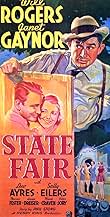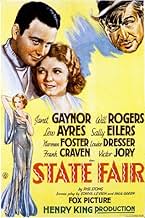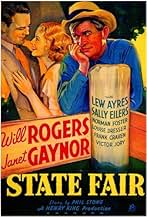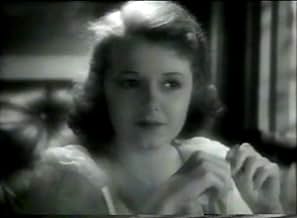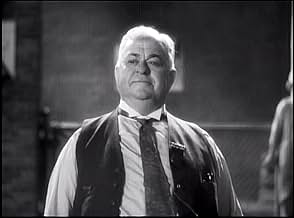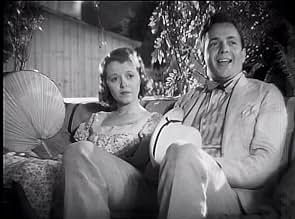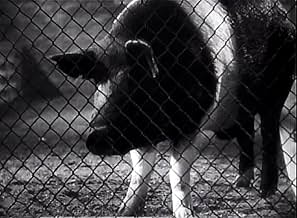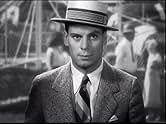VALUTAZIONE IMDb
6,7/10
1250
LA TUA VALUTAZIONE
Aggiungi una trama nella tua linguaAn Iowa family finds adventure, love, and heartbreak when they spend a week at the state fair.An Iowa family finds adventure, love, and heartbreak when they spend a week at the state fair.An Iowa family finds adventure, love, and heartbreak when they spend a week at the state fair.
- Candidato a 2 Oscar
- 5 vittorie e 2 candidature totali
Erville Alderson
- Martin - Hog Breeder
- (non citato nei titoli originali)
Joe Caits
- Baker A. Noblemable - Judges' Secretary
- (non citato nei titoli originali)
Hobart Cavanaugh
- Professor Fred Coin - Hog Judge
- (non citato nei titoli originali)
Judge Dike
- Contest Judge
- (non citato nei titoli originali)
Harry Holman
- Professor Tyler Cramp - Hog Judge
- (non citato nei titoli originali)
Doro Merande
- Mrs. Metcalfe's Acquaintance at Food Contest
- (non citato nei titoli originali)
Edward Mundy
- Barker
- (non citato nei titoli originali)
Dike of Rosedale
- Blue Boy - a Hog
- (non citato nei titoli originali)
John Sheehan
- Barker at Aerial Act
- (non citato nei titoli originali)
Recensioni in evidenza
A farm family encounters situations both poignant & hilarious when they leave home to spend time at the exciting STATE FAIR.
Janet Gaynor gives a sensitive performance as a country girl eager for romance amid the attractions of the Fair. She is both fetching and delightful. She was a big celebrity at the time and gets top billing here even over Will Rogers.
Will gets his own back by deftly underplaying his role as her farmer father. By keeping the corniness to a minimum, he gives the film a special touch of bedrock sensibility and good humor.
The Production Code had obviously not taken effect quite yet, as can be seen by some of the language and situations. These will come as a surprise to some, but were not rare before 1934.
All of Will's scenes are fun - especially those with Miss Gaynor or the hogs. The formidable Louise Dresser appears as his wife. Lew Ayres makes a fine romantic interest for Gaynor & Victor Jory is very good in a small role as an honesty-challenged barker.
Janet Gaynor gives a sensitive performance as a country girl eager for romance amid the attractions of the Fair. She is both fetching and delightful. She was a big celebrity at the time and gets top billing here even over Will Rogers.
Will gets his own back by deftly underplaying his role as her farmer father. By keeping the corniness to a minimum, he gives the film a special touch of bedrock sensibility and good humor.
The Production Code had obviously not taken effect quite yet, as can be seen by some of the language and situations. These will come as a surprise to some, but were not rare before 1934.
All of Will's scenes are fun - especially those with Miss Gaynor or the hogs. The formidable Louise Dresser appears as his wife. Lew Ayres makes a fine romantic interest for Gaynor & Victor Jory is very good in a small role as an honesty-challenged barker.
This 1933 film of STATE FAIR is nearly impossible to see except on one Fox cable channel, but is the best of all versions, with genuine and unsentimental writing and acting. Director Henry King propels the leisurely plot with a thrilling moving camera that efficiently depicts the varied sensations of a state fair, from wholesome contest fun to the menace of barkers and carnies.
King has a consistent handle on the theme, that the state fair is a quick microcosm of life, an event that thrusts persons together in a venue that makes possible the "rollercoaster" of infatuation (and sex--this is pre-code pleasure), the tension of competition, and the diversion from hard work in this depression era America. Even "Blue boy" the hog and "self object" of Will Rogers' likeable character discovers the same conflicted feelings of sexual attraction. The cast is excellent, with standouts of Rogers, a most natural performer, in a film that is unpolluted by awkward stereotyped supporting players common to his films. A truly stunning-looking Lew Ayres is a dream of a roller coaster partner, and Victor Jory in his silk shirt perfectly embodies the carnie whom small children fear to encounter outside the midway. But it's the quiet moments that register the most--the pensive characters driving at dusk to the fair, full of private anticipation, still totally one as a family. Modern films rarely dare such introspective glimpses, but this film doesn't bore because it is so true. These rural citizens are proud and flawed, but like the wonderful characters in MEET ME IN ST. LOUIS, they embrace the chance to take in the fun and mystery of life.
King has a consistent handle on the theme, that the state fair is a quick microcosm of life, an event that thrusts persons together in a venue that makes possible the "rollercoaster" of infatuation (and sex--this is pre-code pleasure), the tension of competition, and the diversion from hard work in this depression era America. Even "Blue boy" the hog and "self object" of Will Rogers' likeable character discovers the same conflicted feelings of sexual attraction. The cast is excellent, with standouts of Rogers, a most natural performer, in a film that is unpolluted by awkward stereotyped supporting players common to his films. A truly stunning-looking Lew Ayres is a dream of a roller coaster partner, and Victor Jory in his silk shirt perfectly embodies the carnie whom small children fear to encounter outside the midway. But it's the quiet moments that register the most--the pensive characters driving at dusk to the fair, full of private anticipation, still totally one as a family. Modern films rarely dare such introspective glimpses, but this film doesn't bore because it is so true. These rural citizens are proud and flawed, but like the wonderful characters in MEET ME IN ST. LOUIS, they embrace the chance to take in the fun and mystery of life.
8tavm
Having previously watched both the 1945 and 1962 musical versions of this film, and knowing YouTube had this non-musical version on its site for the last several years, I finally watched this version of State Fair just now. Other than the added songs in the later versions, this is basically the same story for all three...well, except since this one was produced before the Production Code became more strict, it's implied the male teen had something of a real affair with a female performer. (Though I didn't see the scene of them talking off-screen while the bed on-screen was messed up with another scene of a lingerie on the floor during that. Must have been cut after the Code was enforced.) The humor is both verbally subtle and occasionally visual like when the Janet Gaynor character is on somebody's shoulder and she unknowingly plays with that someone's head when she gets excited about a certain horse in a race. Will Rogers as the father is his charming self as he looks after his pig he hopes wins the big contest. And I always loved when the mother (in this version, Louise Dresser) enters her pickles and mincemeat in another contest because of what is in those foods when they're entered! By the way, I like all three versions but if you don't want to hear those songs, I definitely recommend this version of State Fair.
I was really surprised how much this film moved me. It's really Gaynor and Ayers' movie with Will in more of a supporting role. Well directed with good effects for the era, my enjoyment was genuine and heart felt. Others might enjoy it in terms of sociology or film history,I hated the Pat Boone version and the Dana Andrews' was only alright. I watched it on TCM where the print had several breaks and audio pops.
Aside from the John Ford/Will Rogers films (embarrassing stereotypes aside) Will's sound films are very mixed. They're tailor made for his persona but weak casts, low production and stage bound screenplays have you reaching for the FF. He redeems most of them but I'm happy to find this solid work made shortly before his death. Surprised it escaped my attention until now.
Aside from the John Ford/Will Rogers films (embarrassing stereotypes aside) Will's sound films are very mixed. They're tailor made for his persona but weak casts, low production and stage bound screenplays have you reaching for the FF. He redeems most of them but I'm happy to find this solid work made shortly before his death. Surprised it escaped my attention until now.
Before there was the Rodgers and Hammerstein musical, which is maybe the most well known version of this property, there was this early sound film that starred Janet Gaynor and Will Rogers.
This film meanders amiably along and has almost no dramatic conflict, aside from whether or not a family's pickles or pig is going to win big at the state fair. But nevertheless there's a kind of ethereal, melancholy spell created by this movie that appealed to me. The idea of a state fair becomes a metaphor for life itself: it's full of expectations and excitement, the pursuit of things we want, some of which we get and some we don't, and it's all over more quickly than we want it to be, leaving us with only the memory.
I haven't seen any other versions of this, but am positive none of them treat the sexual awakening of the daughter and son characters, and especially the son's, as frankly as this version does, given its pre-Code status.
Gaynor was a big deal at the time, having won the very first Best Actress Oscar. And Will Rogers was a huge star and American icon, largely because of his performance in this. It's kind of hard to see now what people went nuts for at the time, since it's all so low-key and humble. Chalk it up to changing times I guess.
Neither actor was nominated for this film -- no actors were nominated. But "State Fair" did manage to get itself a Best Picture nomination and a second in the Best Writing (Adaptation) category.
Grade: A-
This film meanders amiably along and has almost no dramatic conflict, aside from whether or not a family's pickles or pig is going to win big at the state fair. But nevertheless there's a kind of ethereal, melancholy spell created by this movie that appealed to me. The idea of a state fair becomes a metaphor for life itself: it's full of expectations and excitement, the pursuit of things we want, some of which we get and some we don't, and it's all over more quickly than we want it to be, leaving us with only the memory.
I haven't seen any other versions of this, but am positive none of them treat the sexual awakening of the daughter and son characters, and especially the son's, as frankly as this version does, given its pre-Code status.
Gaynor was a big deal at the time, having won the very first Best Actress Oscar. And Will Rogers was a huge star and American icon, largely because of his performance in this. It's kind of hard to see now what people went nuts for at the time, since it's all so low-key and humble. Chalk it up to changing times I guess.
Neither actor was nominated for this film -- no actors were nominated. But "State Fair" did manage to get itself a Best Picture nomination and a second in the Best Writing (Adaptation) category.
Grade: A-
Lo sapevi?
- QuizDirector Henry King went to the 1932 Iowa State Fair and Exposition in Des Moines with Stong and a camera crew at the invitation of the fair and filmed background material there. Joseph A. Valentine and Edwin Hammeras photographed background plates, atmospheric shots and race sequences at the fair and used the new Eastman Grayback Background Negative film stock. The rest of the production was shot an Eastman Supersensitive Negative stock and used two cameras wherever possible. Fox purchased three hogs from the fair, including the grand champion, Dike of Rosedale, who was cast as "Blue Boy."
- BlooperThe storekeeper says that Henry VIII had eight wives. He had six.
- Citazioni
Abel Frake: Wayne's got a girl.
Storekeeper: So did Henry VIII, eight of them, but he always showed up at every state affair with a new one.
- Curiosità sui creditiMost of the credits appear as posters being put up on billboards by workmen. In the film's final scene, there is a heavy rain, and as it washes away the poster bearing the title "State Fair", we see that it was pasted over another poster that says "The End".
- Versioni alternativeThe original version had a bedroom scene in which Emily and Wayne are heard talking offscreen with Emily's negligee lying on a chair, suggesting that they were in bed together for illicit sex. This scene was cut in 1935 from all existing prints in order to get an approval certificate from the PCA for a re-release. The scene is not included in the print that the Fox Movie Channel currently broadcasts.
- ConnessioniFeatured in Lest We Forget (1937)
- Colonne sonoreRomantic
(1933) (uncredited)
Music by Louis De Francesco
Lyrics by Val Burton and Will Jason
Played during the opening credits and often in the score
Sung offscreen by an unidentified male at the fair
Partially sung a cappella by Janet Gaynor
I più visti
Accedi per valutare e creare un elenco di titoli salvati per ottenere consigli personalizzati
- How long is State Fair?Powered by Alexa
Dettagli
- Data di uscita
- Paese di origine
- Lingua
- Celebre anche come
- State Fair
- Luoghi delle riprese
- Des Moines, Iowa, Stati Uniti(State Fair and Exposition exterior scenes)
- Azienda produttrice
- Vedi altri crediti dell’azienda su IMDbPro
- Tempo di esecuzione1 ora 39 minuti
- Colore
- Proporzioni
- 1.37 : 1
Contribuisci a questa pagina
Suggerisci una modifica o aggiungi i contenuti mancanti


